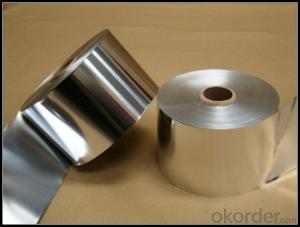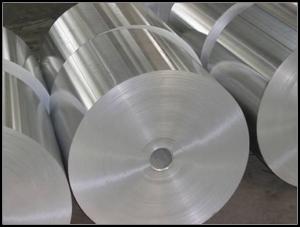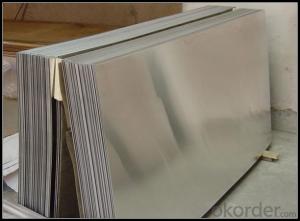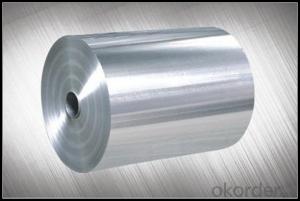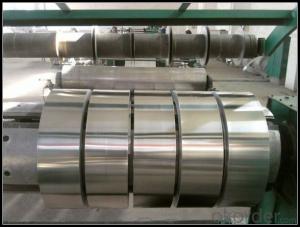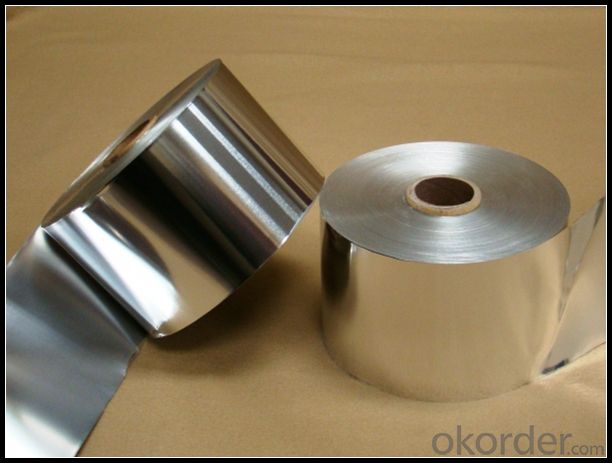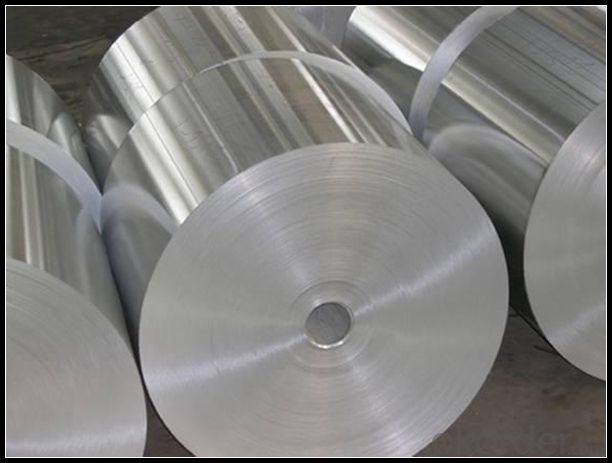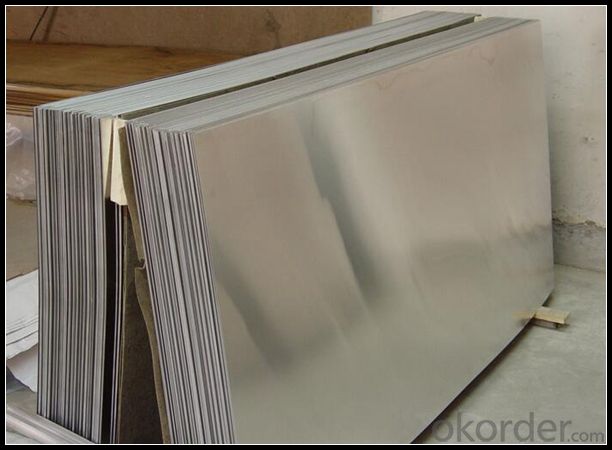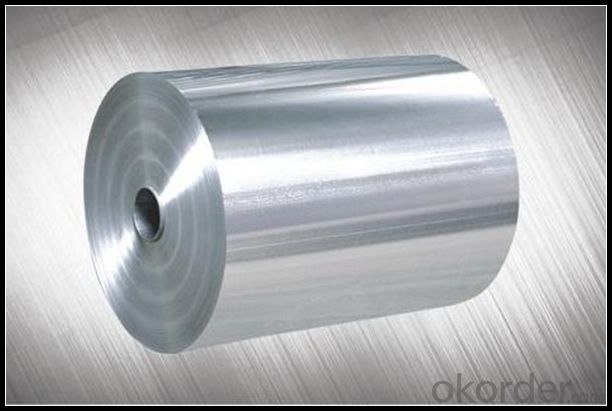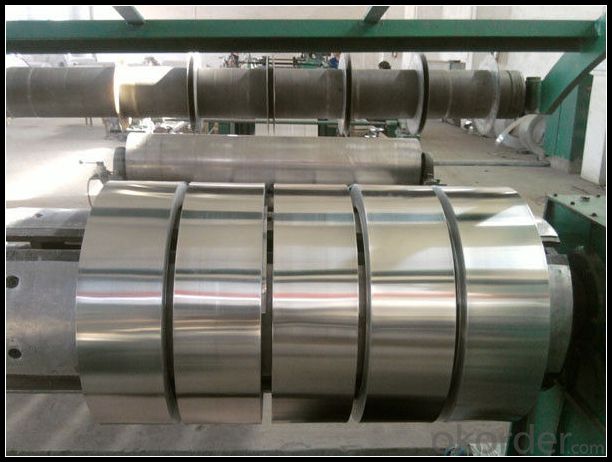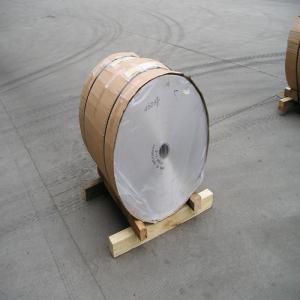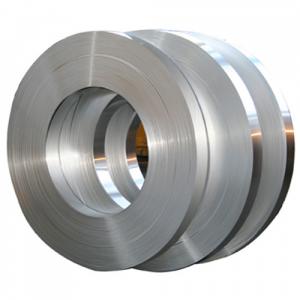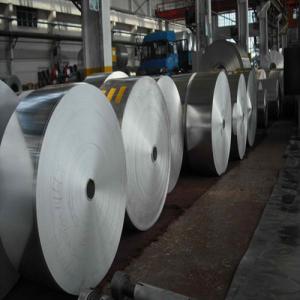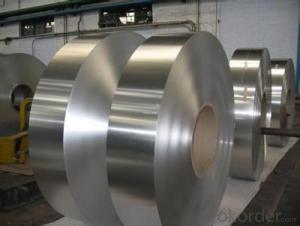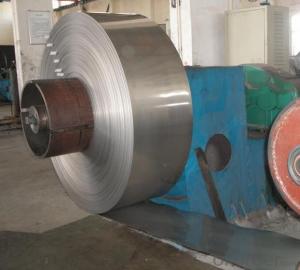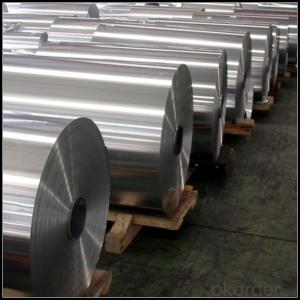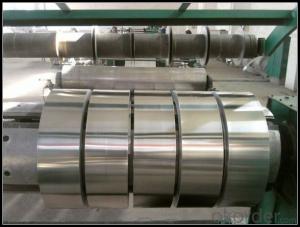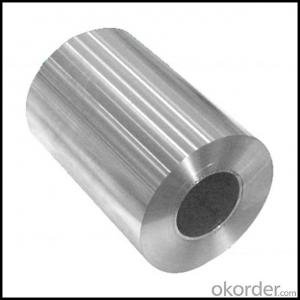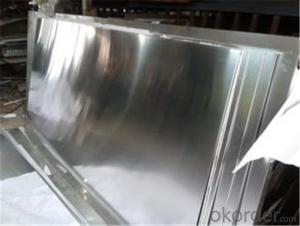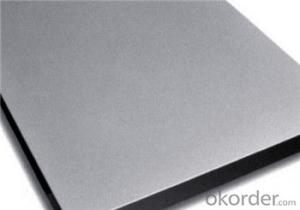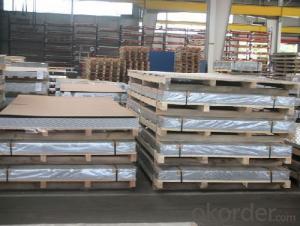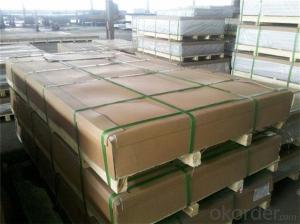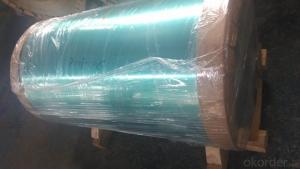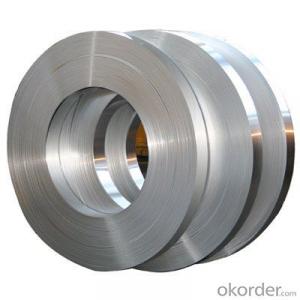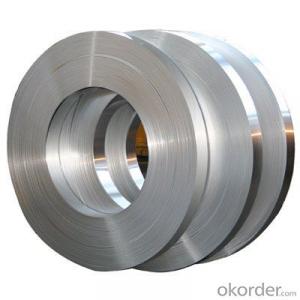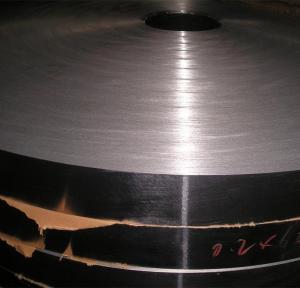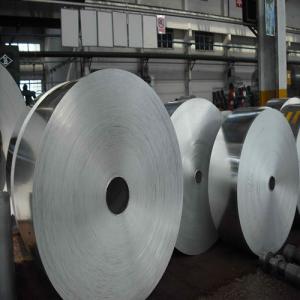Aluminum Strips - Qualified Color Coated 1050 1100 Aluminum Sheet at Factory Price
- Loading Port:
- Tianjin
- Payment Terms:
- TT OR LC
- Min Order Qty:
- 1 m.t.
- Supply Capability:
- 4999 m.t./month
OKorder Service Pledge
OKorder Financial Service
You Might Also Like
Specification
1. Specification of Aluminum
1) Alloy | 1050, 1060,1100, 3003 3004 3105 3005 5005 5052 etc |
2) Temper | O/H12/H14/H1/H18/H32/H34/H36/H38//H111/H112/H116/H321/T6/T651/T3/T351 etc |
3) Thickness | 0.1mm to 6mm |
4) Width | 20mm to 3300mm |
5) Coil weight | 100kgs to 6 tons depends on actual requirement |
6) Core material | Aluminum alloy |
7) Coil Inner diameter | 76mm, 152mm,or as required |
2. Application of Aluminum
(1).Interior: wall cladding, ceilings, bathrooms, kitchens and balconies, shutters, doors...
(2).Exterior: wall cladding, facades, roofing, canopies, tunnels,column covers , renovations...
(3).Advertisement: display platforms, signboards, fascia, shop fronts...
3. Feature of Aluminum
*Our coil is made directly from ore, no need to go though the ingot making process, quality is much better than other suppliers who use ingot scrap to make coil.
*Such coil is specially designed to replace aluminum ingot, due to the high export tax of aluminum ingot, the coil has better price than ingot.
*This type of coil can fit customer's remelting furnace just like ingot, no need to make any change to the production line that was previously used for ingot. The standard coil size and weight is very suitable for the feed gate of furnace.
Be free from Oil Stain, Dent, Inclusion, Scratches, Stain, Oxide Dicoloration, Breaks, Corrosion, Roll Marks, Dirt Streaks and other defect which will interfere with use
4. Certificate:
SGS and ROHS(if client request, paid by client), Certificate of Origin(FORM A, FORM E, CO), Bureau Veritas and SGS (if client request, paid by client), CIQS certificate
5. Image of Aluminum
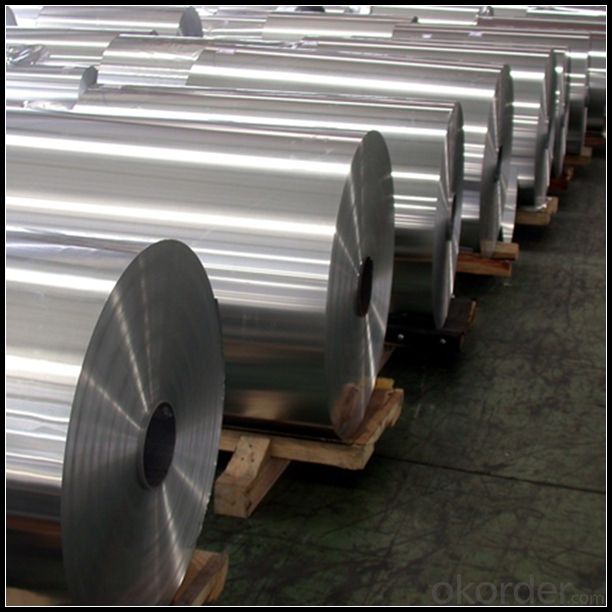
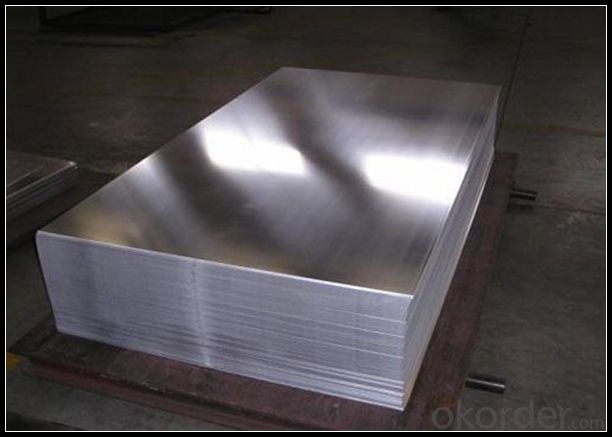
6. Our Service
1. Reply your enquiry in 24 working hours. |
2. OEM, buyer design, buyer label services provided. |
3. Exclusive and unique solution can be provide to our customer by our well traned and professional engineers and staffs. |
4. We can provide free sample for your check |
5. We have the certification of ISO 9001 |
6. Timely delivery |
7. Special discount and protection of sales area provided to our distributor. |
8. Good after-sale service. |
7. FAQ
Q: What is the produce prase? | ||||
A: Normally it would be 40days after received your deposit. | ||||
Q: Can you provide free samples? | ||||
A: Yes, free samples will be sent to you on freight at destination. | ||||
Q: Can I get your latest catalogue? | ||||
A: Yes, it will be sent to you in no time. | ||||
Q: What is the MOQ? | ||||
A: 3 tons | ||||
Q: What are your payment terms? | ||||
A: We accept L/C, D/A, D/P, T/T, West Union,etc. |
- Q: This question asks about the impact of temperature on the performance of aluminum strips used in construction.
- <p>Temperature significantly affects the performance of aluminum strips in construction. At low temperatures, aluminum becomes more brittle, reducing its ductility and increasing the risk of cracking or breaking under stress. Conversely, high temperatures can cause aluminum to lose strength and become more susceptible to deformation. It's crucial to maintain optimal working temperatures to ensure the structural integrity and longevity of aluminum components. Additionally, temperature fluctuations can lead to thermal expansion and contraction, affecting the fit and alignment of aluminum strips, potentially causing gaps or misalignments in constructions.</p>
- Q: Is it possible to utilize recycled aluminum for the production of roofing materials for residential use?
- <p>Yes, you can use recycled aluminum to make roofing materials for your home. Recycled aluminum is not only environmentally friendly but also cost-effective. It maintains the same properties as new aluminum, making it suitable for various applications, including roofing. Recycled aluminum roofing materials are durable, lightweight, and resistant to corrosion, which are desirable qualities for any roofing system. However, it's important to ensure that the recycled aluminum is sourced from a reputable supplier to guarantee quality and safety.</p>
- Q: What are the potential health risks related to the use of aluminum foil?
- <p>While aluminum foil is widely used in cooking and food storage, there is limited evidence to suggest significant health risks. Some studies have linked aluminum exposure to neurological conditions like Alzheimer's, but the connection is not conclusive. The body does not absorb significant amounts of aluminum from foil, especially when used properly. However, it's important to avoid wrapping acidic or highly acidic foods in aluminum foil, as this could potentially lead to increased aluminum leaching. Overall, using aluminum foil in moderation and following proper food handling practices can minimize any potential risks.</p>
- Q: Is it suitable to use aluminum strips for roofing in areas with high temperatures?
- <p>Yes, aluminum strips can be used for roofing in hot climates. Aluminum is a lightweight, durable, and corrosion-resistant material that can withstand high temperatures without degrading. It reflects heat, reducing the amount of heat absorbed by the roof, which can help keep the interior of a building cooler. Additionally, aluminum's resistance to rust and corrosion makes it an ideal choice for climates with high humidity or where there is a risk of saltwater corrosion. However, it's important to ensure proper installation and ventilation to maximize its performance and longevity.</p>
- Q: This question seeks to understand the distinctions between two common metal materials: aluminum strips and steel sheets.
- <p>Aluminum strips and steel sheets differ in material composition, properties, and applications. Aluminum strips are made from aluminum, a lightweight metal known for its corrosion resistance and high thermal conductivity. They are often used in applications requiring light weight and flexibility, such as in electrical wiring or heat exchangers. Steel sheets, on the other hand, are made from steel, which is an alloy of iron and carbon. Steel is stronger and more durable than aluminum, making it suitable for construction, automotive, and heavy machinery. Steel also has higher magnetic permeability and is more resistant to wear. The choice between aluminum strips and steel sheets depends on the specific requirements of the project, such as strength, weight, and environmental conditions.</p>
- Q: Is it possible to utilize recycled nails or screws for the installation of aluminum strips?
- <p>Yes, you can use recycled nails or screws to install aluminum strips, provided they are in good condition and compatible with the material. Ensure the recycled fasteners are clean, rust-free, and have no damage that could affect their holding power. It's also important to use the correct size and type of nails or screws suitable for the thickness and type of aluminum strips you are installing. Always follow safety precautions and use appropriate tools to prevent injury.</p>
- Q: Is it possible to use aluminum foil as a material for roofing purposes?
- <p>While aluminum foil itself is not a suitable roofing material due to its lack of durability and structural strength, it can be used as a temporary solution in emergency situations or for small repairs. Aluminum foil is not designed to withstand the elements over time, nor does it provide the necessary insulation or protection against water and wind that a proper roofing material should. For long-term roofing solutions, it's best to use materials specifically designed for roofing, such as asphalt shingles, metal sheets, or tiles, which offer greater durability and weather resistance.</p>
- Q: This question asks if there are different types of aluminum with varying levels of electrical conductivity.
- <p>Aluminum, as a pure element, has a consistent electrical conductivity. However, its conductivity can be affected by the presence of impurities or alloying elements. In general, the higher the purity, the better the conductivity. Alloys like 1100 aluminum (99.00% pure) have the highest conductivity among aluminum alloys. Adding elements like copper, magnesium, or silicon to aluminum can increase its strength but will decrease its conductivity. Therefore, while there isn't a 'better' type of aluminum in terms of conductivity, there are alloys with varying levels of conductivity based on their composition and purity.</p>
- Q: This question asks if there are any safety concerns when using aluminum strips in construction projects.
- <p>Yes, there are safety issues related to using aluminum strips in construction. Aluminum, while lightweight and corrosion-resistant, can have issues with strength and load-bearing capacity, especially in heavy-duty applications. It can also be a fire hazard due to its melting point, which is significantly lower than that of steel. Additionally, aluminum can react with other materials, leading to galvanic corrosion. Proper engineering and safety measures must be taken to mitigate these risks, including using appropriate alloys, ensuring adequate structural support, and implementing fire safety protocols.</p>
- Q: What safety regulations impact the use of aluminum strips in construction?
- <p>Yes, there are safety regulations that affect the use of aluminum strips in construction projects. These regulations vary by country and region but generally include requirements for material strength, durability, and resistance to corrosion. For instance, aluminum strips must meet specific standards for load-bearing capacity and fire resistance. Compliance with electrical safety standards is also crucial if the strips are used in electrical installations. Additionally, construction codes often dictate the proper use of aluminum strips in structural components, cladding, or as reinforcement. It's essential to consult local building codes and industry standards like the International Building Code (IBC), American Society for Testing and Materials (ASTM) standards, or European Norm (EN) standards to ensure compliance with safety regulations.</p>
Send your message to us
Aluminum Strips - Qualified Color Coated 1050 1100 Aluminum Sheet at Factory Price
- Loading Port:
- Tianjin
- Payment Terms:
- TT OR LC
- Min Order Qty:
- 1 m.t.
- Supply Capability:
- 4999 m.t./month
OKorder Service Pledge
OKorder Financial Service
Similar products
Hot products
Hot Searches
Related keywords
